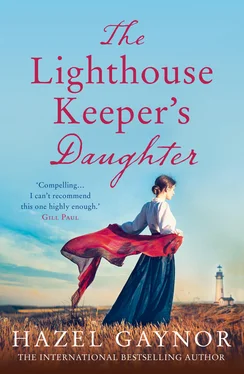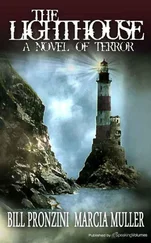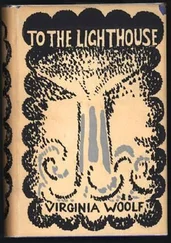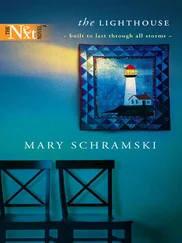George
x
p.s. Eliza is looking forward to seeing you. She and her mother will visit while you are here. They are keen to discuss the wedding.
Sarah admires the miniature lighthouses George has drawn in the margins before she folds the letter back into neat quarters and returns it to her pocket. She hopes Eliza Cavendish doesn’t plan to spend the entire month with them. She isn’t fond of their eager little cousin, nor her overbearing mother, but has resigned herself to tolerating them now that the engagement is confirmed. Eliza will make a perfectly reasonable wife for George and yet Sarah cannot help feeling that he deserves so much more than reasonable. If only he would look up from his canvas once in a while, she is sure he would find his gaze settling on someone far more suitable. But George will be George and even with a month at her disposal, Sarah doubts it will be long enough to change his mind. Still, she can try.
Night falls beyond the porthole as the ship presses on toward Dundee. One more night’s sailing, Sarah tells herself, refusing to converse with the concerns swimming about in her mind. One more night, and they’ll be safely back on dry land. She holds the locket against her chest, reminding herself of the words John had engraved on the back. Even the brave were once afraid .
Courage, Sarah , she tells herself. Courage .
CHAPTER TWO
GRACE
Longstone Lighthouse. 6th September, 1838

DAWN BLOOMS OVER the Farne Islands with soft layers of rose-tinted clouds. From my narrow bedroom window I admire the spectacle, while not trusting it entirely. We islanders know, better than most, how quickly the weather can turn, and there is a particular shape to the clouds that I don’t especially care for.
After spending the small hours on watch, I’m glad to stretch my arms above my head, savoring the release of tension in my neck and shoulders before climbing the steps to the lantern room. Another night navigated without incident is always a cause for quiet gratitude and I say my usual prayer of thanks as I extinguish the Argand lamps, their job done until sunset. The routine is so familiar that I almost do it without thought: trim the wicks, polish the lenses of the parabolic reflectors to remove any soot, cover the lenses with linen cloths to protect them from the glare of the sun. Necessary routine tasks which I take pride in doing well, eager to prove myself as capable as my brothers and eager to please my father.
A sea shanty settles on my lips as I work, but despite my efforts to focus on my chores, my thoughts—as they have for the past week—stubbornly return to Mr. George Emmerson. Why I persist in thinking of him, I cannot understand. We’d only spoken briefly—twenty minutes at most—but something about the cadence of his Scots burr, the particular way he rolled his r ’s, the way he tilted his head when surveying the landscape, and most especially his interest in Mary Anning’s fossils, has stuck to me like barnacles on a rock. “Tell me, Miss Darling, what do you make of Miss. Anning’s so-called sea drrragons?” My mimicry brings a playful smile to my lips as I cover the last of the reflectors, idle thoughts of handsome Scotsmen temporarily concealed with them.
The lamps tended to, I walk once around the lantern to catch the beauty of the sunrise from all angles. From the first time I’d climbed the spiraling lighthouse steps at the age of seven, it was here, at the very top of the tower, where I loved to be most of all, the clouds almost within touching distance, the strong eighty-foot tower below keeping us safe. The uninterrupted view of the Farne Islands and the Northumbrian coast hangs like a vast painting in a private gallery, displayed just for me, and despite the growl in my stomach I’m in no hurry to head downstairs for breakfast. I lift Father’s telescope from the shelf and follow a flock of sandwich terns passing to the south before lowering the lens to watch the gulls bobbing about on the sea, waiting for the herring fleet to return. The patterns of light on the surface of the water remind me of Mary Herbert’s silk dress shimmering as she danced a reel at last year’s harvest home ball.
Dear Mary. Despite our friendship, she and her sister, Ellen, have always thought me a curious creature, unable to understand how anyone could possibly prefer the wind-lashed isolation of an island lighthouse to the merry hubbub of a dance. “Will we see you at the ball this year, Grace? Henry is anxious to know.” Their dedication to the cause of finding me a suitable husband—preferably their brother—is nothing short of impressive, but the business of marriage doesn’t occupy my thoughts as it does other women of my age, who seem to think about little else. Even my sisters, who now live over on the Main, perpetually tease me about being married to the lighthouse. “You’ll never find a husband if you hide away in your tower, Grace. You can’t very well expect the tide to deliver one to you.” Time and again, I have patiently explained that even if I did marry I would merely be swapping the life of a dutiful daughter for that of a dutiful wife, and from what I’ve observed I’m not at all convinced the institution of marriage is worth the exchange. It is a point well-made, and one they find difficult to argue with.
As I make my way down to the service room which sits just below the lantern room, I pause at the sound of my father’s voice floating up the steps.
“You coming down, Gracie?” Mam has a fresh loaf. She insists it needs eating before the mice get to it.”
His Trinity House cap appears above the top step, followed by thick eyebrows, white as the lime-washed tower walls. I take his arm to help him up the last few steps.
“You’re supposed to be resting,” I scold.
His breathing is labored. His cheeks—already rusted from decades of wind and sun—scarlet with the effort of climbing the ninety-three steps from the ground floor. “I know, pet. But Mam mithers when I rest. Thought I’d be better off resting where she can’t see me.” He winks as he sinks gladly into his favorite chair, taking the telescope from me and lifting it to his eye. “Anything doing?”
“Mercifully quiet,” I remark, adding a few lines to the Keeper’s Log about the weather and the sea conditions before recording the tides. “A few paddle steamers and fishing vessels passed. The seals are back on Harker’s Rock.”
Father scans the horizon, looking for anything unusual among the waves, interpreting the particular shape of the swells, crests, and troughs. It bothers him that his eyesight isn’t what it used to be, glad to have me as a second pair of eyes. We make a good team; him the patient teacher, me the eager pupil.
“Seals on Harker’s Rock, eh. Local fishermen will tell you that’s a sign of a storm coming. Mam’s already fretting about your brother getting back.” He focuses the telescope on the clouds then, looking for any indication of approaching squalls or incoming fogs or anything to suggest an imminent change in the conditions. My father reads the clouds and the behavior of the seabirds as anyone else might read directions on a compass, understanding the information they offer about bad weather approaching, snow on the way, a north wind blowing. Partly by his instruction and partly by an inherent islander’s instinct nurtured over my twenty-two years, I have absorbed some of this knowledge, too. But even the most experienced mariner can occasionally be fooled.
Читать дальше













